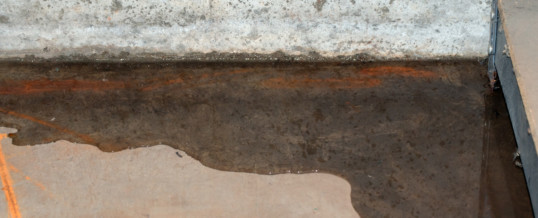
Can you remember the last time you inspected your crawl space? Have you ever?
If you’re like most people, the thought of venturing into your crawl space is one of the last things on your mind. It’s cramped, dirty, and probably filled with cobwebs and the spiders that created them.
However, at some point, you need to inspect this area to see if there is water in crawl space. If there is, it can cause a lot of damage.
Read on to discover what these unseen dangers might be.
Dangers of Water in Crawl Space: Structural Damage
Your crawl space is located directly under your house, and it is surrounded by the concrete walls of your foundation. It also contains the wood supports that keep your house upright.
Should you have standing water in your crawl space, this can have an impact on both the concrete and the wood.
Concrete may appear solid, but it actually acts like a sponge and soaks up any water under the house. As the concrete ages, it becomes softer and more porous. Thus, it can absorb and hold onto more water.
Once water gets into the concrete, it will expand and contract. This causes cracks to form. Water in your concrete coupled with shifting soils around your foundation can lead to large cracks and serious problems. If the cracks get big enough, they could lead to total house collapse.
Not only is the concrete under your house impacted by standing water in the crawl space, but the wooden foundation supports can experience problems as well.
Like concrete, wood will soak up water. Too much water leads to wood rot, which softens and weakens the wood. If allowed to go on for too long, the support structures may completely give out. Should this happen, your flooring might sink and/or part of your house could collapse.
Mold and Mildew
Both mold and mildew thrive in moist, humid environments. If water seeps into your crawl space, it will create the ideal place for both of these items to grow.
Mold can negatively impact your or your family’s health—and it’s not just black mold you have to worry about. If you or anyone in your family has a mold allergy, then breathing in any mold spores can lead to an allergic reaction. Prolonged exposure could result in chronic lung issues and other health problems.
Mildew doesn’t normally impact your health, but it will wreak havoc on the wooden surfaces in your basement. It can soften and weaken them, which can lead to structural issues and the potential collapse of your home.
Pests
Crawl space water attracts a wide variety of pests, including rodents and termites. Since you don’t venture into this area often, they will be able to establish colonies without fear of being discovered.
Having termites in your crawl space means that they will target the wooden structural supports and eat their way through them. Again, if the supports sustain too much damage, they will collapse and take your home with them.
With pests in your crawl space, especially rats and/or mice, it won’t take long for animals to find their way into your home. Since these animals can carry diseases and their waste can also be harmful to your health, it’s in your best interest to remove standing water in the crawl space to make this area less appealing to critters.
How to Get Water Out of Crawl Space
If you know that you have standing water in your crawl space, you are probably wondering how to get it out. The first thing you need to do is figure out where the water is coming from.
Some of the most common ways water gets into your crawl space include the following:
- Groundwater – This water could seep through the soil, into the concrete walls of your foundation, and then into your crawl space. It might also be coming up through the dirt floor in your crawl space.
- Surface water – Water from heavy rains, inadequate gutter systems, or sprinklers can also find their way into your crawl space.
- Plumbing problems – A lot of the pipes that supply water to your home are routed through your crawl space. If the pipes develop a leak or break, this could be the reason why you have water under your house.
Knowing where the water is coming from will help determine the best way to take care of the problem. In the case of plumbing problems, fixing the leaking or broken pipe might be all that’s necessary to keep water out.
For water that gets into the area from the ground or surface sources, you might have to encapsulate the crawl space or add a sump pump.
Who to Call for Water in Crawl Space
When it comes to dealing with water in crawl space, it’s in your best interest to call in a professional. They’ll be able to quickly determine where the water is coming from and develop a plan to keep it out.
At Armored Basement Waterproofing, we have more than 20 years of experience when it comes to dealing with water in basements and crawl spaces. We also offer free inspections.
We guarantee that we won’t propose a plan to take care of the water in your crawl space without first knowing exactly where it’s coming from. You deserve the peace of mind knowing that you won’t have standing water under your home, and we do our best to give it to you. Contact us today!
ShareJUL
